Inside the Double Lives of Pakistan's Cross-Dressing Men
"I am a man who simply enjoys dancing and needs money to have a better life, and being a woman is the way."

Cloaked in a vibrant red sari, a veil covering his fully made-up face, 27-year-old Waseem Akram has become "Rani," a female dancer. "I am not transgendered," Akram asserts to Pulitzer Prize-winning photographer Muhammed Muheisen. "I am a man who simply enjoys dancing and needs money to have a better life, and being a woman is the way."
Akram lives in the northern Punjab city of Rawalpindi, Pakistan, where he works as a mobile accessories salesman at an alleyway shop and struggles to make a living. "One job is not enough to help me and my family," Akram says. "Being a dancer at weddings, parties and private events...helps me to earn much more money than working in a shop."
Akram is one of a small group of men living in Rawalpindi who lead double lives. During the daylight hours, they are salesmen and hotel clerks. At night, they assume female identities.
Photographer Muheisen spent two years following these men, and provides an extraordinary look inside their world with his series Pakistan Double Life. "I tried many times during those two years to take photographs, but it wasn't easy," Muheisen tells MarieClaire.com. "I kept visiting them and explaining my approach and my intention until they believed and understood what was trying to do."
"Across conservative Pakistan, where Islamic extremists launch near-daily attacks and many follow a strict interpretation of their Muslim faith male cross-dressers and the transgendered face a challenge of balancing two identities," Muheisen explains. "Some left their villages for the anonymity of a big city, fearing the reactions of their families while still concealing their identity from neighbors and co-workers."
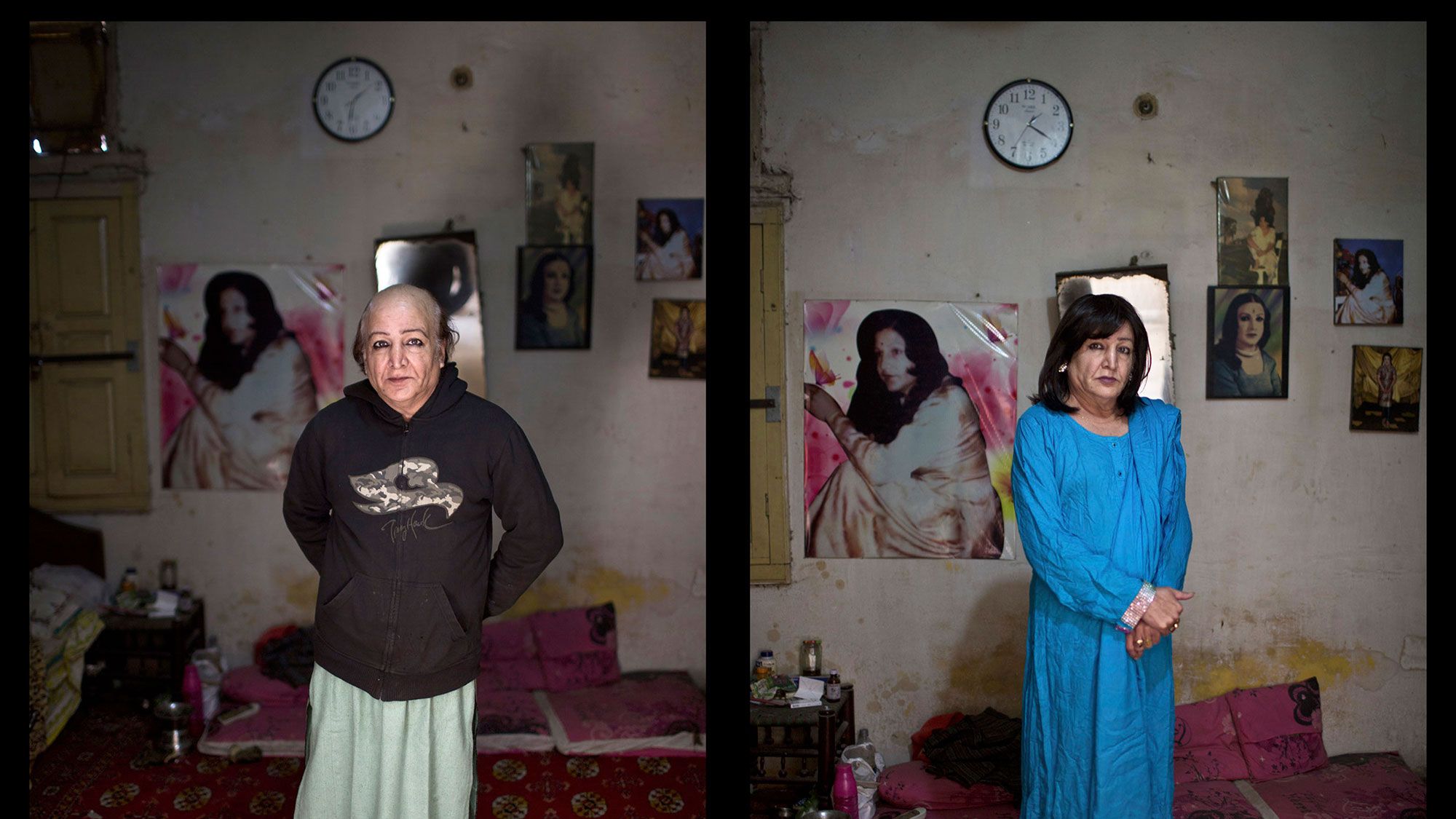
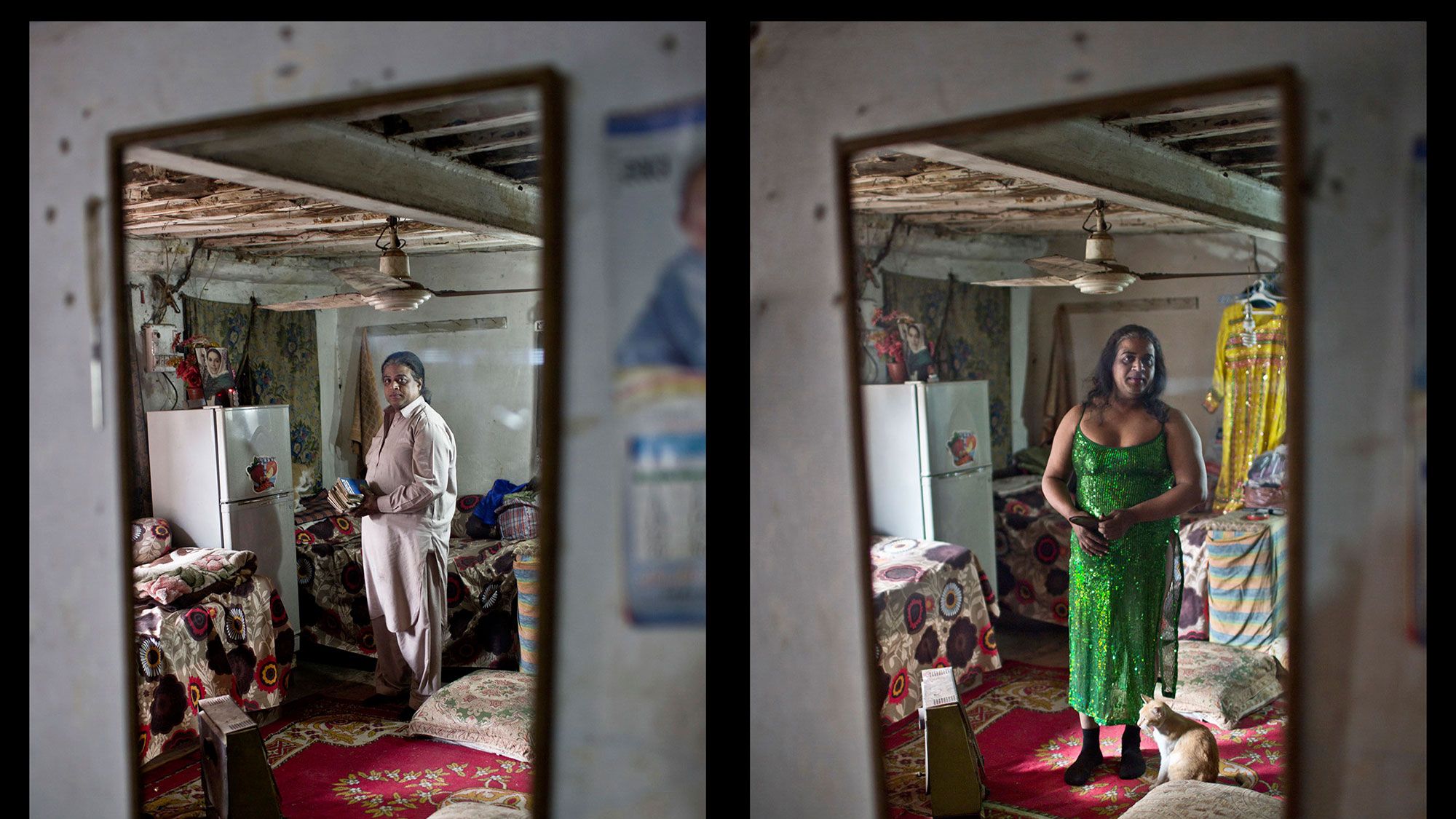
Many face harassment and threats, and yet, explains Muheisen, the men are readily accepted "dancers at weddings and other celebrations at which men and women are strictly segregated."
Still, despite a 2009 ruling allowing transvestites, eunuchs, and hermaphrodites (referred to in Punjabi as "hijra") to identify as a third gender to "ensure their rights," the men face shame and scrutiny from the population at large.
Get exclusive access to fashion and beauty trends, hot-off-the-press celebrity news, and more.
As a result, several share an apartment together to find support.
"Eyes always follow me when I walk out of the apartment that I share with a few friends who share the same job like mine (as) dancers," Bakjtawar Ijaz told the AP. "Being with them is like being with a family. When I am surrounded by them, I feel safe, respected and empowered."
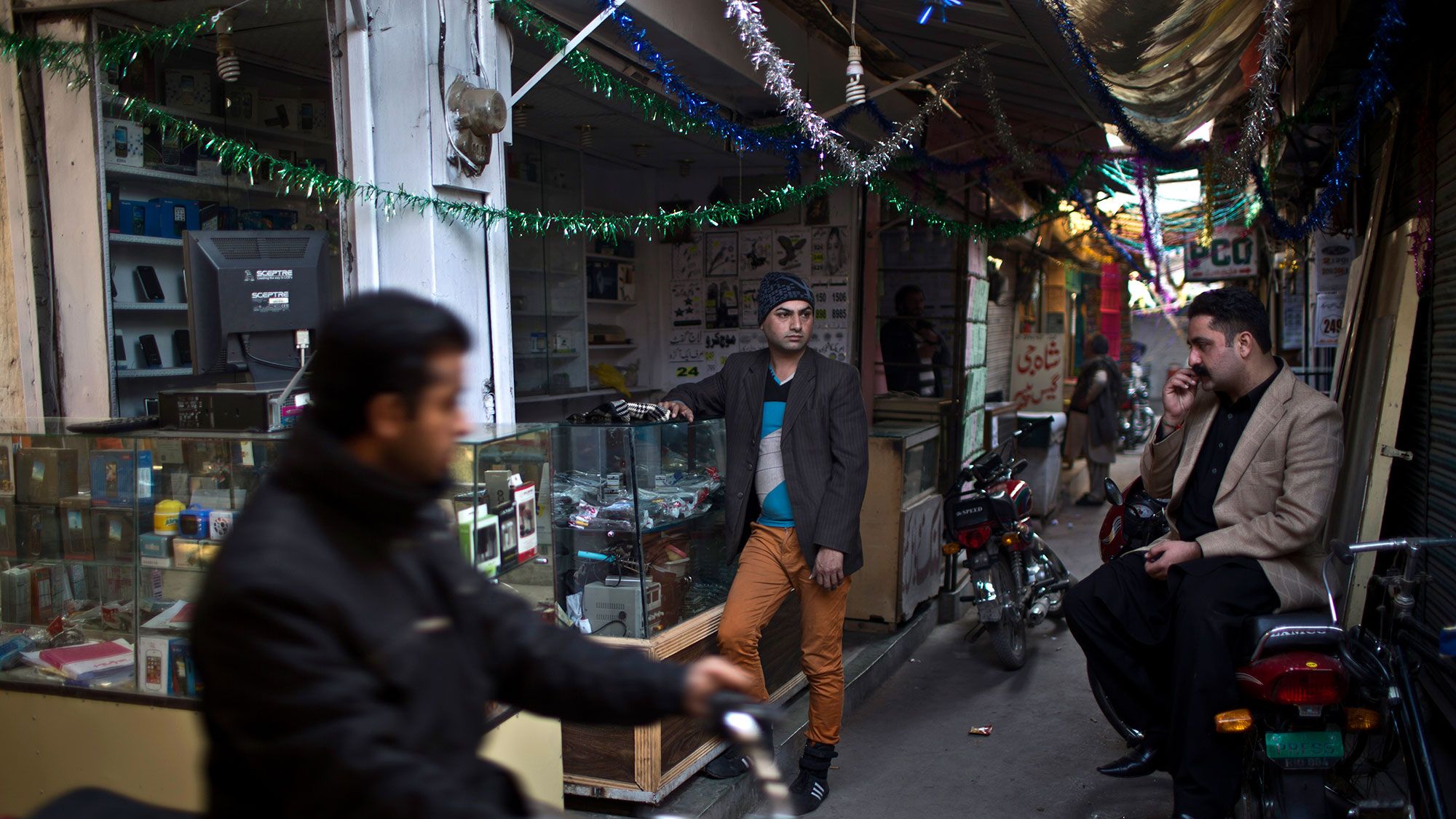
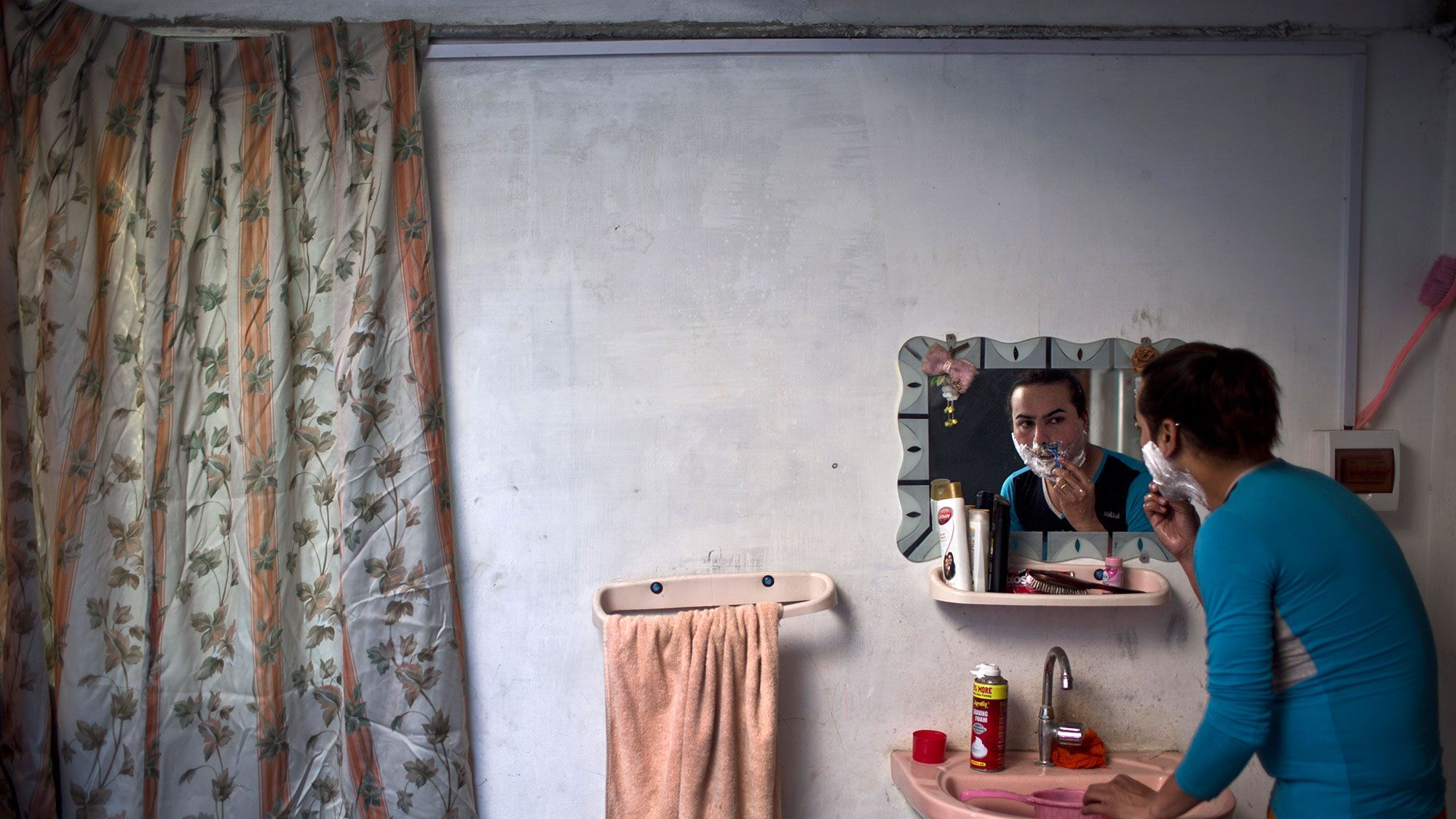
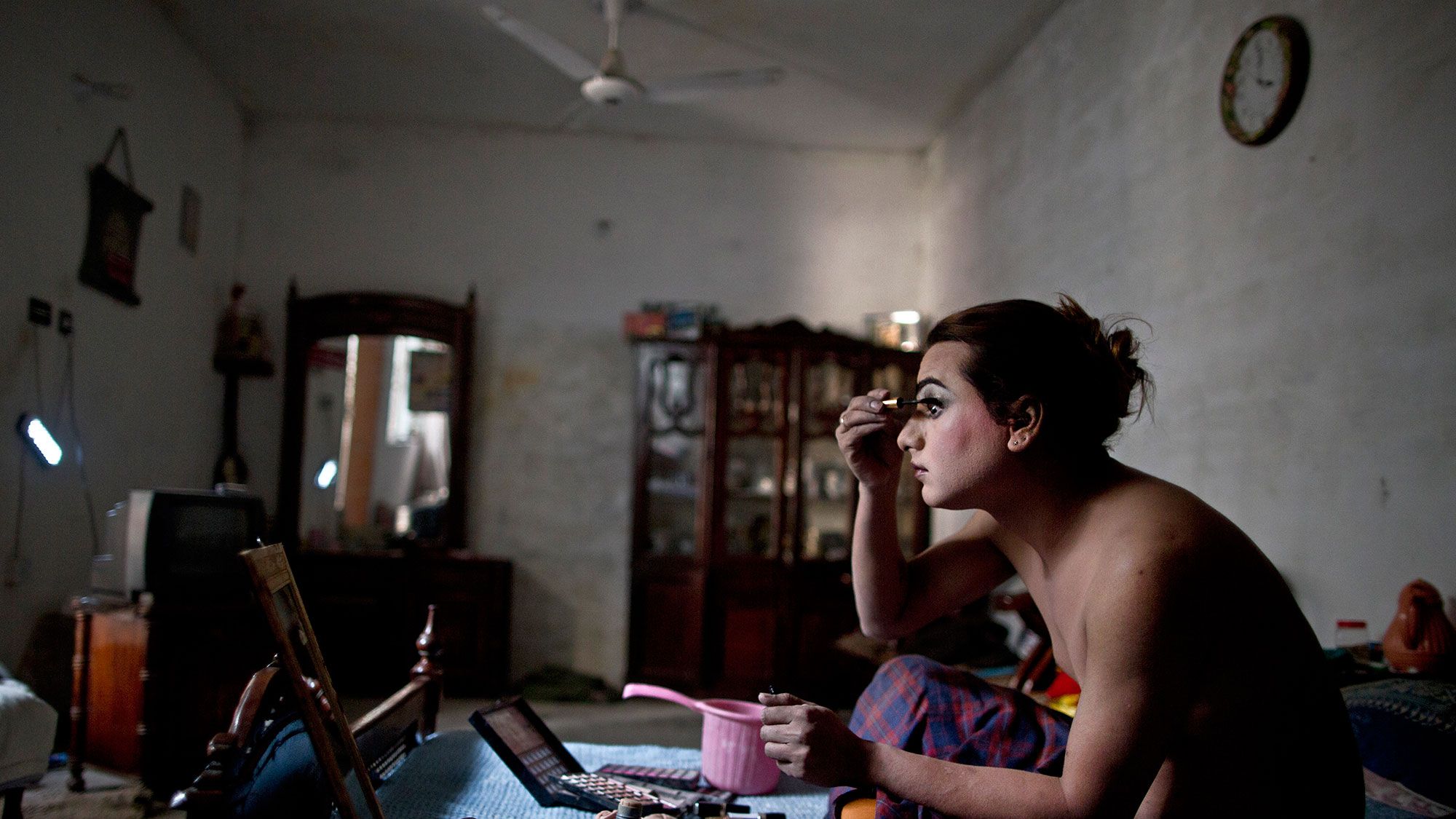
You should also check out:
What the Country's First All-Female Mosque Means for Muslim Women
Strategic Visual Content Editor for Hearst Digital Media, Photo Editor of Esquire.com, and staff photographer at Hearst. Basically, I am a MadLib.
